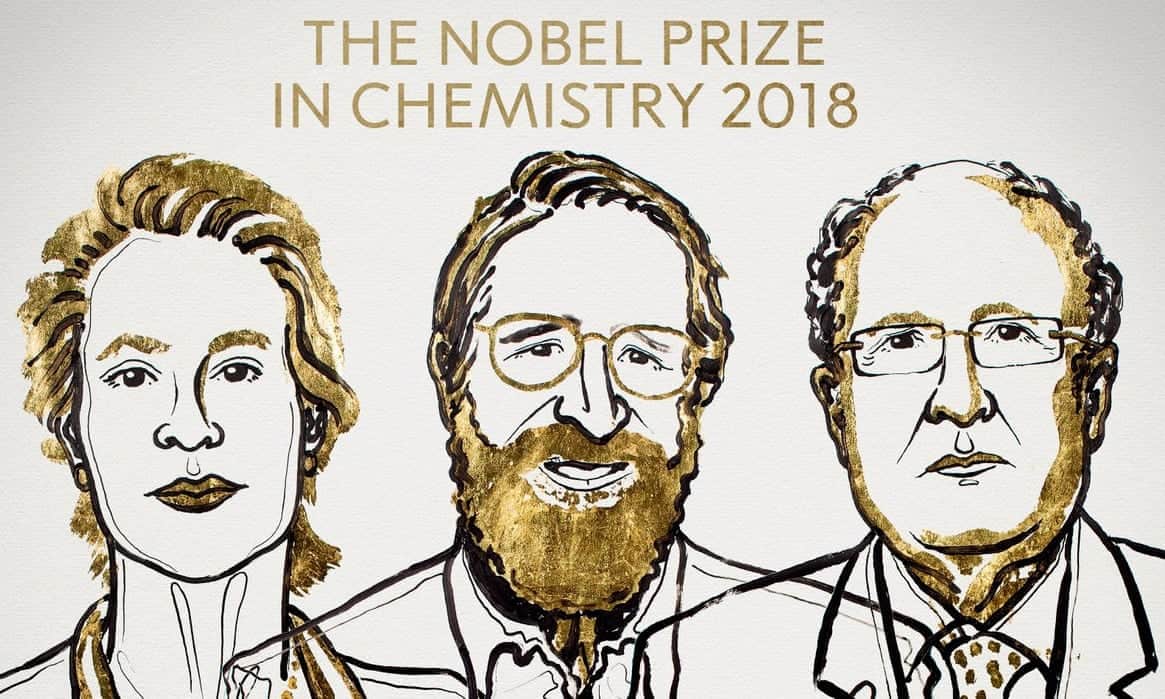
The 2018 Nobel Prize in Chemistry has been awarded to three scientists for discoveries in protein research that have become pillars of pharmaceutical R&D.
Frances Arnold of the California Institute of Technology in Pasadena is receiving a half-share of the 9m Swedish kroner (around $1m) prize for her work on the directed evolution of enzymes, including the creation of new catalysts that are used for more efficient and environmentally-friendly manufacturing of chemicals, including pharmaceuticals.
Arnold is the fifth woman over the past 117 years to win a Nobel Prize in chemistry, nine years since Ada Yonath received the prize for her work on the structure and function of the ribosome.
The other half of the share goes to Sir Gregory Winter of the University of Cambridge and George Smith of the University of Missouri in Columbia, and is awarded for their work on phage display, a technique that uses viruses that infect bacteria to evolve new peptides and antibodies.
The technology has become widely used to synthesise new drug substances, including AbbVie’s immunology blockbuster Humira (adalimumab) which is the biggest-selling drug in the world.
“This year’s Nobel Laureates in Chemistry have been inspired by the power of evolution and used the same principles – genetic change and selection – to develop proteins that solve mankind’s chemical problems,” said the Royal Swedish Academy of Sciences, which selects the chemistry prize each year.
This year’s winners are “a great advert for chemistry,” according to Professor Dame Carol Robinson, president of the Royal Society of Chemistry, as their work “highlights the tremendous role of chemistry in contributing to many areas of our lives including pharmaceuticals, detergents, green catalysis and biofuels.”
“”Directed evolution of enzymes and antibody technology are subjects that I have followed with keen interest; both are now transforming medicine,” she added. “It would have been hard to predict the outcome of this research at the start – this speaks to the need for basic research.”
Meanwhile, the Medical Research Council (MRC) – where Sir Gregory was formerly deputy director – also praised the recipients, saying that the phage display work “initiated a pharmaceutical revolution and led to the establishment of a whole new class of drugs which have helped millions of patients worldwide.”
Earlier this week, the 2018 Nobel Medicine Prize was jointly won by James Allison of the University of Texas and Tasuku Honjo of Kyoto University for their work on cancer immunotherapy, another transformative development for the pharma industry.




